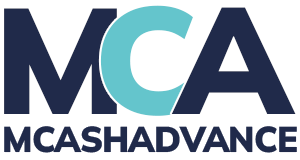
When your application is approved, we’ll send you a merchant cash advance (MCA) offer. This offer outlines how much we’re willing to provide, what it will cost, and how repayment works. It might not match the exact amount or terms you asked for. That’s normal. We base the offer on your business’s sales, deposit patterns, and risk profile.
In this article, we’ll walk you through how MCA offers work, what to look out for, and what to do next.
Step 1: Receiving the Offer
Once you’re approved, you’ll receive your offer by email. Most providers, including us, give you a secure online link to view the terms. If you’re working through a broker, they might call or text you the offer and walk through it by phone.
You’ll usually have a few days to decide. Offers can expire, especially if your sales are volatile or the lender’s funding capacity changes. If you’re unsure about timing, ask.
Step 2: Reviewing the Offer
Take your time. MCA offers can vary from provider to provider. Some terms are negotiable. Others are fixed. Here’s what to review:
Advance Amount
This is the lump sum we’re offering to advance your business.
Factor Rate
This determines the cost of the advance. A factor rate of 1.35 on a $20,000 advance means you’ll repay $27,000 in total.
Total Repayment
Multiply the advance by the factor rate to get this number. It’s fixed and does not change based on when you repay.
Holdback Percentage
This is the percent of your daily card sales or bank deposits we collect until the total payback is met. Most fall between 10 percent and 20 percent.
Repayment Term
We’ll estimate how long it might take to pay back based on your recent sales. This is not a fixed term, just a projection.
Fees
Some MCA providers charge origination fees, admin fees, or wire fees. We don’t. Make sure you check. All fees should be disclosed up front.
Offer Expiry Date
Offers do not stay open forever. If you delay, we might need to reassess your application before re-issuing.
Prepayment Terms
Unlike loans, paying early won’t reduce your cost unless we offer a buyout discount. Ask if that’s available.
Renewal Policy
Some providers trigger automatic renewals once you repay a portion. If you don’t want that, clarify it early.
Step 3: Checking Legal Clauses
Before signing, look for risk clauses. These are the terms that can affect your business long after funding.
Personal Guarantee
You might be personally liable if your business cannot repay. Read this carefully.
UCC Lien
Most providers file a lien against your business assets. This can limit your ability to get other financing.
Confession of Judgment
This clause allows the lender to enter a court judgment against you without a trial if you default. Not all states allow it. We don’t use this clause, but some providers do.
Step 4: Comparing Offers
Don’t rush. You can compare multiple offers even if you’re approved with one provider. Until you accept the offer and sign the agreement, you’re not committed.
Most MCA offers are valid for a few days to a week, depending on the provider. Some may expire sooner if your sales fluctuate or if lender capacity changes. Always check the expiry date on your offer, and if it’s not clear, ask your provider directly.
Look at:
- Total cost of capital
- Daily cash flow impact
- Repayment structure
- Legal risks
- Prepayment options
Use a simple worksheet or calculator to compare. If you’re unsure, talk to your accountant.
Step 5: Negotiating the Offer
You don’t have to accept the first offer you receive. If your sales are strong or your business has low risk, you may be able to negotiate:
- A lower factor rate
- A higher advance
- A longer estimated term
- Reduced holdback percentage
Most providers are open to adjustments. Just ask.
Step 6: Making Your Decision
Before accepting, double check:
- The full repayment amount
- The impact on your daily cash flow
- The terms around prepayment or renewal
- Any personal liability
- Whether you’ve compared other offers
You’ll likely sign the agreement online. If you’re working with a broker, they’ll walk you through the steps.
Once you accept the offer, you’ll receive a formal MCA agreement to sign. That document is legally binding. You can review what to look for at MCA agreement.
Step 7: What Happens After You Accept
Once you sign:
- Funds are sent, typically in 1 to 2 business days
- Daily deductions begin the next business day
- You’ll see transactions in your bank account that match the agreed holdback
- You can monitor your repayment progress in your online dashboard
Make sure you carefully consider your offer, get multiple offers if you can from different providers. See if the MCA provider is willing to negotiate terms. After we provide you with an offer, don’t be afraid to discuss the offer with us and we can explain how we got to the rates we’re proposing based on the risk we are taking on advancing you the funds.
Ready to Apply?
or learn more about MCA bad credit

